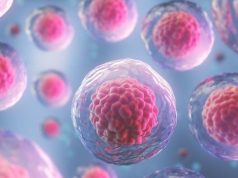However, toxic side effects of strong chemo could limit use
FRIDAY, June 10, 2016 (HealthDay News) — A treatment combining chemotherapy and an autologous hematopoietic stem-cell transplantation (aHSCT) could represent a major advance against aggressive multiple sclerosis (MS), according to a study published online June 9 in The Lancet.
Harold Atkins, M.D., an associate professor of clinical hematology at the University of Ottawa in Canada, and colleagues treated 24 MS patients, aged 18 to 50. Autologous CD34 selected hematopoietic stem-cell grafts were collected following treatment with cyclophosphamide and filgrastim. Immunoablation was followed by aHSCT. Median follow-up was 6.7 years.
The researchers determined that the treatment stopped MS relapses and progression in 23 of 24 patients, and these 23 patients no longer needed medication to control their MS. Eight showed continued improvement for nearly eight years. Many of the patients had substantial recovery of neurological function. While improvement was notable, side effects were significant. One patient died from a liver infection, and eight had moderate toxic effects. Fourteen had mild side effects, the study authors said.
“We describe the first treatment to fully halt all detectable central nervous system inflammatory activity in patients with multiple sclerosis for a prolonged period in the absence of any ongoing disease-modifying drugs,” the authors conclude. “Furthermore, many of the patients had substantial recovery of neurological function despite their disease’s aggressive nature.”
Abstract
Full Text (subscription or payment may be required)
Editorial (subscription or payment may be required)
Copyright © 2016 HealthDay. All rights reserved.








